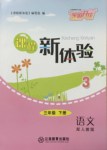题目内容
“Look, it’s Baldy!” A boy shouted in my direction across the playground. Even though I was
used to regular insults(侮辱)because of the 41 on my head, it was 42 horrible to hear. I sighed as I headed back to the class.
When I was just 20 months old, I suffered serious 43 after a bowl full of hot oil fell on my head. I was 44 to hospital and had to stay there for weeks while the doctors 45 to save my life. “Holly’s very 46 to be alive,” they told Mum and Dad. “But she’ll be 47 with scars on her head, and of course her hair won’t grow there.”
As a child, I cared much about my scars, so I 48 wore a scarf to cover them up when I left home. 49 I didn’t, people would call me horrible names like Baldy. Although my friends were always comforting me, they never 50 understood how it felt.
Then through the hospital I was 51 to a children’s burns camp, where children like me can get any help. There I 52 14-year-old Stephanie, whose burns are a lot more serious than mine. But she is so 53 that she never lets anyone put her down. “You shouldn’t 54 what people say about what you look like because we’re not different from anyone else, Holly, ” She 55 me. “And you don’t need to wear a scarf because you look great 56 it!” For the first time in my life I could speak to someone who’d been through something 57 . So weeks later, at my 13th birthday party, 58 by her bravery, I gave up my scarf and showed off my scars. It felt amazing not having to 59 away behind my scarf.
Now, I am 60 of what I look like and much happier, because I have realized it is your personality that decides who you are.
41. A. hat B. scarf C. scars D. cuts
42. A. still B. just C. never D. seldom
43. A. hunger B. cold C. defeats D. burns
44. A. rushed B. led C. invited D. forced
45. A. learned B. fought C. returned D. decided
46. A. happy B. lucky C. lonely D. poor
47. A. pressed B. occupied C. left D. painted
48. A. possibly B. usually C. finally D. nearly
49. A. Although B. Since C. If D. Before
50. A. correctly B. roughly C. easily D. really
51. A. promoted B. introduced C. reported D. carried
52. A. met B. recognized C. remembered D. caught
53. A. honest B. strong C. active D. young
54. A. write down B. agree with C. pass on D. listen to
55. A. promised B. encouraged C. ordered D. calmed
56. A. in B. for C. without D. beyond
57. A. similar B. strange C. hard D. important
58. A. allowed B. required C. guided D. inspired
59. A. hide B. give C. keep D. put
60. A. sick B. awake C. tired D. proud
CADAB BCBCD BABDB CADAD

 芝麻开花课程新体验系列答案
芝麻开花课程新体验系列答案“It hurts me more than you” and “This is for your own good” — these are the statements my mother used to make years ago when I had to learn Latin, clean my room, stay home and do homework.
That was before we entered the permissive period in education in which we decided it was all right not to push our children to achieve their best in school. The schools and the educators made it easy for us. They taught that it as all right to be parents who take a let-alone policy. We stopped making our children do homework. We gave them calculators, turned on the television, left the teaching to the teachers and went on vacation.
Now teachers, faced with children who have been developing at their own pace for the past 15 years, are realizing we’ve made a terrible mistake. One such teacher is Sharon Klompus who speaks of her students “so passive” and wonders what has happened. Nothing is demanded of them, she believes. Television, says Klompus, contributes to children’s passivity. “We’re talking about a generation of kids who've never been hurt or hungry. They have learned somebody will always do it for them, instead of saying 'go and look it up’, you tell them the answer. It takes greater energy to say no to a kid.”
Yes, it does. It takes energy and it takes work. It’s time for parents to end their vacation and come back to work. It's time to take the car away, to turn the TV off, to tell them it hurts you more than them but it's for their own good. It's time to start telling them no again.
【小题1】Children are becoming more inactive in study because _______.
| A.they watch TV too often | B.they have done too much homework |
| C.they have to fulfill too many duties | D.teachers are too strict with them |
| A.when everything can be taught at school |
| B.when every child can be educated |
| C.when children are permitted to receive education |
| D.when children are allowed to do what they wish to |
| A.parents should leave their children alone |
| B.kids should have more activities at school |
| C.it's time to be more strict with our kids |
| D.parents should always set a good example to their kids |
